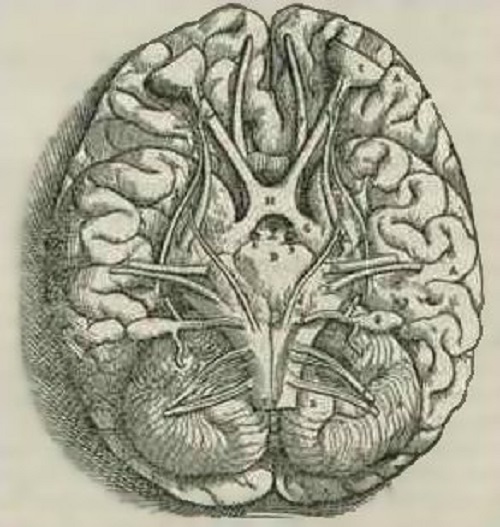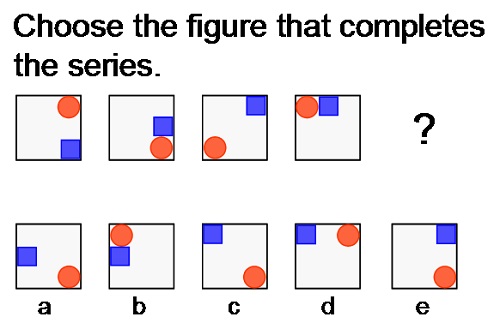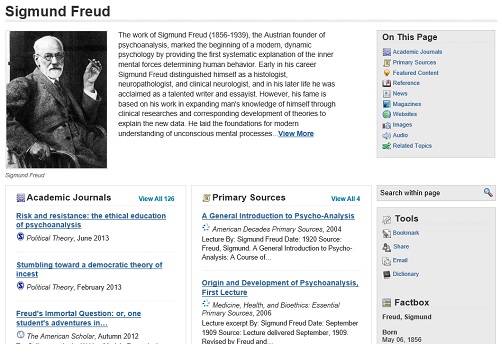This week, in our ongoing series on how to do research in the major disciplines at IU East, we will look at psychology. Psychology courses can have a lot of potential research topics – you might be looking for a theorist, a type of treatment, historical issues in psychology, or approach from a mental health perspective.
Most types of psychology research are well supported by the general techniques we explored at the beginning of this series. Several databases are tailored for this, including PsycINFO and ProQuest Psychology. If you are interested in a historical topic, a database like JSTOR may also be of value. All of our other psychology-related databases can be found here.
So, for example, if we were interested in a question like “how reproducible are the results of psychological studies?” we might try a search like this:
(study OR research) AND (result* OR finding*) AND (reproduc* OR replic* OR duplic*)
You can see that we are searching for three main concepts, and using several possible words for each of them to get the best available results. By the same token, if we had a topic about a specific theory, such as “what goes into the feedback response in Social Learning Theory, excluding extreme cases that involve violence?” we might use a search like this one:
“social learn*” AND (feedback OR respons* OR reinforc*) NOT (violen* OR crim*)
Much like the first search, we are using synonyms for several concepts in order to get articles that use different words for the same thing – only this time, we are including two concepts and excluding a third. Searching like this can help us get a fuller picture of what is available. If you just search for one term and don’t get back very much, consider modifying your search terms to look more like this one.
One additional requirement that you may be given is to find and use primary sources. Primary sources are anything written directly by a participant. In a research field like psychology, this generally means original research studies in which the author of the article took part in the research process. To identify these, quickly browse through the full text of the article and see if it describes a study being done. If one is, usually the paper will include sections with subtitles like ‘methodology’, ‘participants’, ‘analysis’, ‘results’, etc. If the article only describes what others have done without doing its own research, it is a secondary source. For example, this paper is a primary source and this paper is not.
Of course, the study of psychology has its own unique needs that are not mirrored by other disciplines. Fortunately, we have sources for these, as well.
PSYCHOLOGY TESTS
Psychology frequently requires building and administering tests, whether those are to test the mental faculties of a person or to examine a moral or behavioral reaction they might have. Being able to construct and run a good test is imperative to get meaningful results. While no one database is dedicated to making, running, and critiquing tests, we have a number of books that are, so you might want to start with an ebook database like Ebrary, EBSCO Ebooks, Wiley Online Library, or OxRef and search for ‘psychological tests’. A sample of titles in these databases include Essentials of Psychological Testing by Susana Urbina, IQ and Psychometric Tests: Assess Your Personality, Aptitude and Intelligence by Phillip Carter, Psychological Testing: An Introduction by George and Marla Domino, and Dictionary of Psychological Testing, Assessment and Treatment by Ian Stuart-Hamilton.
THEORIST BIOGRAPHY
When studying the history of psychology, the careers and theories of its various practitioners are often major topics. How a psychologist introduced or refined a theory often still has implications for modern practice. To learn more about these theorists, you might use any of the ebook sources listed in the previous section. Or, you might use a biographical database, like Biography in Context, which in addition to including long and short biographies, also has academic journal articles and primary sources from the subject’s life. It includes numerous theorists from Jung to Skinner to Bandura to Freud to Glasser to Bloom and beyond.
With plenty of good psychology resources available to you, you’ll be well positioned to do excellent research. But if you have any questions, please contact us at iueref@iue.edu!




